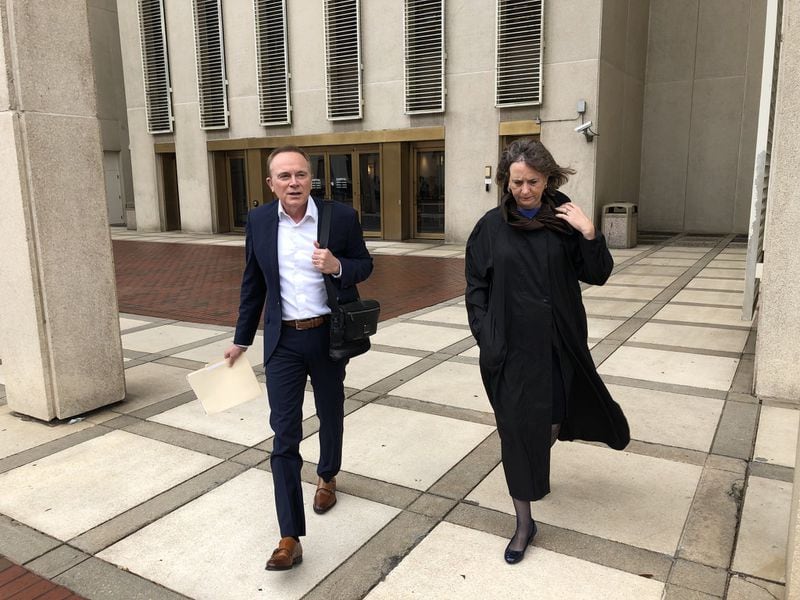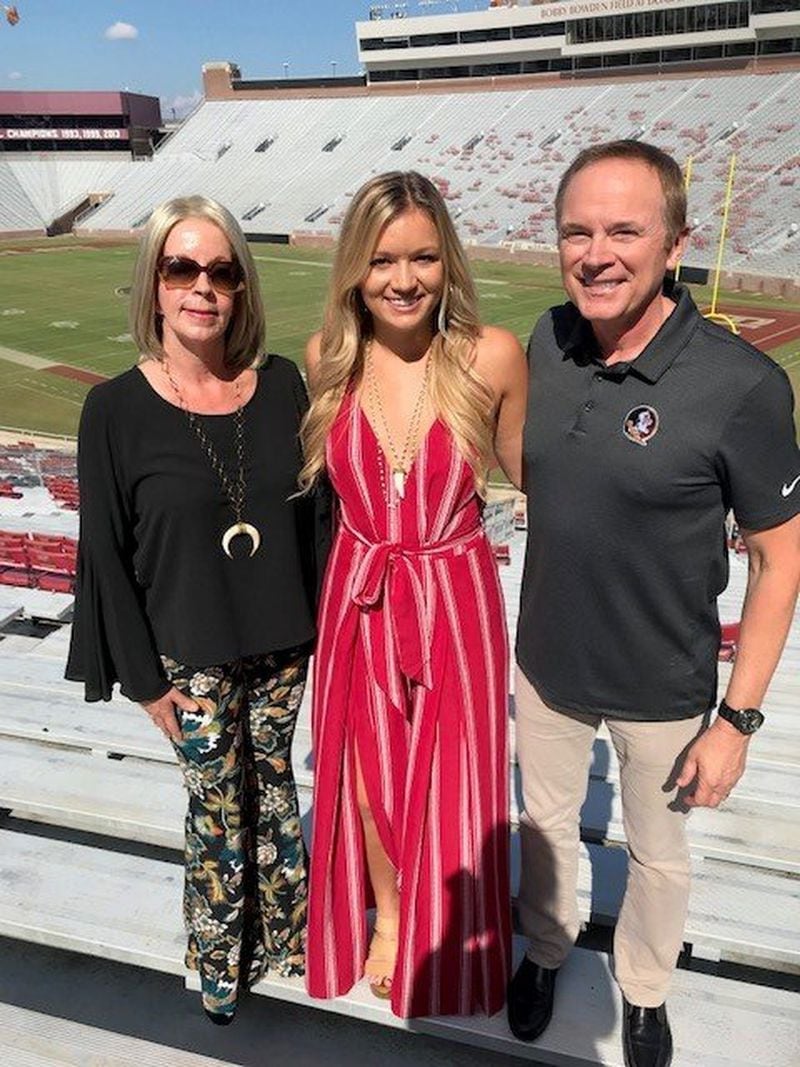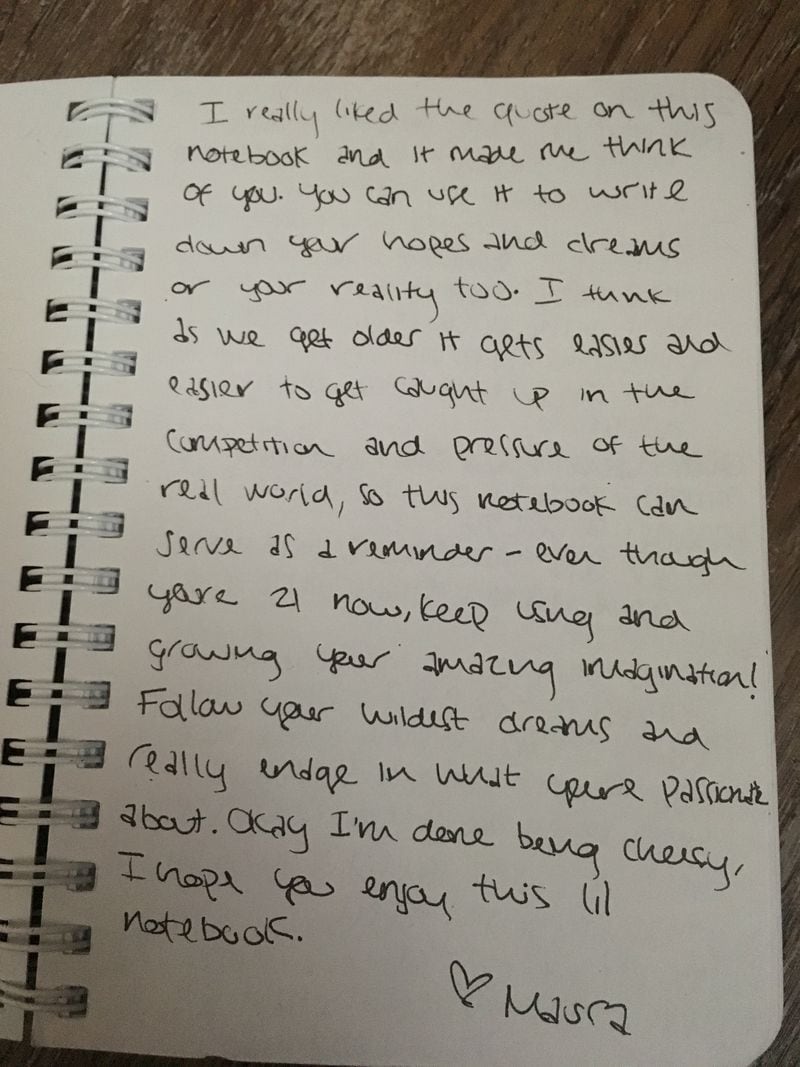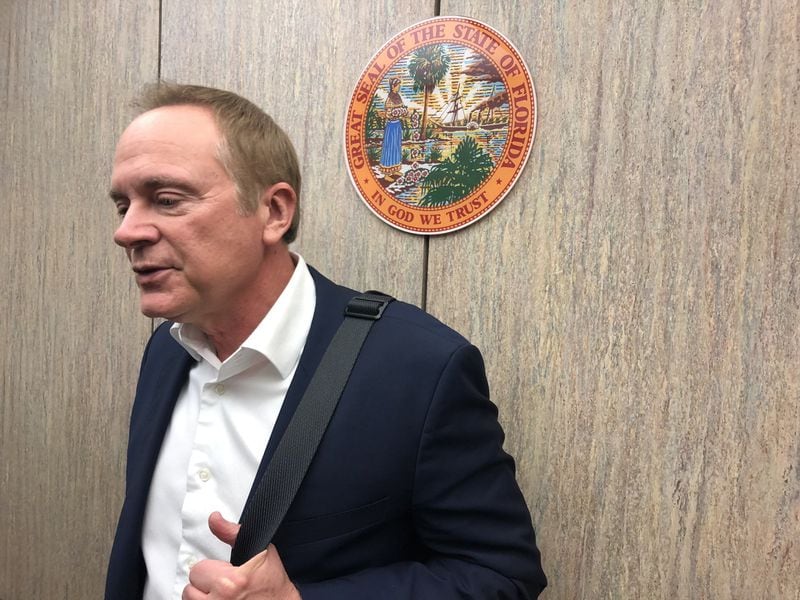Maura Binkley grew up as part of a generation scarred by mass shootings.
Days after a gunman killed 17 students and staffers at Marjory Stoneman Douglas High School last year in Parkland, Fla., Binkley joined thousands at Florida’s Capitol for a rally. The Florida State University senior and Dunwoody native, who wanted to be a diplomat, felt compelled to find a way to stop gun violence, friends and her father said.
Less than nine months later, Binkley's life was cut short by the same gun violence she had pledged to fight. A man who police said hated women positioned himself behind Binkley during a class at a Tallahassee yoga studio, pulled a pistol and shot and killed Binkley and 61-year-old Dr. Nancy Van Vessem. The gunman wounded five others before killing himself in a spasm of violence that shook Tallahassee.
On Monday, on what would have been Binkley’s 22nd birthday, her parents, Jeff and Margaret Binkley, friends and Florida State administrators and students will unveil a nonprofit dedicated to understanding the causes of gun violence and funding research to inform policy and other responses to reduce gun deaths.
Jeff Binkley said Maura’s Voice Research Fund will fill a gap where state, federal and nonprofit dollars currently don’t go, and back research to better understand the connections between mental illness, hate and violence and how it all affects public safety.
Maura’s Voice also will delve into issues of violence against women.
Binkley sums up the nonpartisan group’s mission as “Ideas before ideology. Research before rhetoric. Policy before politics.”
Though violent crime rates and gun deaths are down compared to decades ago, mass shootings are on the rise. Tragedies such as Parkland and the shooting at Sandy Hook Elementary School in Newtown, Conn., galvanized gun control advocates and younger adults towards tackling the problem.
But efforts to pass legislation have largely been blocked in a hyper-partisan Washington and in many Republican-leaning state legislatures.
Binkley said he hopes his group can cut through partisanship and help provide empirical evidence to craft public safety policy and scrutinize existing policy to find out what works and what doesn’t.
He points to recent bipartisan federal criminal justice reform legislation as an example of different ideologies finding common ground. Like the civil, gay and women’s rights movements, the issue of gun violence will take persistent effort and the winning of hearts and minds to solve, he said.
The Second Amendment needs to be respected, Binkley said, but there has to be a balance to prevent violent people from hurting others.
“We would urge people not to be resigned that these are going to be every day events but understand that we can capitalize on what we know and our capacity to learn much more and then implement that through our policy process,” he said.
‘Many small people’
Maura Binkley grew up in Dunwoody and graduated from Dunwoody High School. She studied German and majored in the editing, writing and media program at Florida State, where she was a leader in the Delta Delta Delta sorority.
She was exploring Teach for America, while also pursuing a Fulbright Scholarship, hoping to teach in Germany, where she’d previously studied.
Her nature, Jeff Binkley said, was to help people, and she was drawn to international relations.
In her room, Maura Binkley kept a copy of a mural painted on a remaining section of the Berlin Wall that contained the quote, “Many small people, who in many small places do many small things, can alter the face of the world.”
Last year’s Parkland shooting, he said, deeply hurt his daughter.
Maura Binkley sent her parents videos from the State Capitol rally and they talked many times about what a single person might do to help.
“These high schoolers had their classmates and friends shot and killed a week ago and they are so resilient,” she texted a friend. “They are up here fighting for their rights; it’s amazing.”
Weeks later, the Binkleys encountered parents of Parkland victims in the lobby of a downtown Tallahassee hotel.
“We went back over and sat down at the bar and just talked about, my goodness, here are these parents, here are these students. What can we do? There are no good answers,” Binkley said.
“Just a matter of months later, it’s us,” he said. “The degrees of separation are gone.”
On Nov. 2, Maura Binkley went to a yoga class near her apartment. She and her roommates had planned a movie night and Binkley would bake a dessert.
Credit: Courtesy of Audrey Benson
Credit: Courtesy of Audrey Benson
At the studio that evening was Scott Beierle. The 40-year-old Army veteran had written songs with misogynistic lyrics and had harassed and abused women in his past; including arrests for groping. He wrote about torture, rape and murder, according to Tallahassee Police.
Though police said Beierle planned the attack for months, they found no connections to his victims.
Lindsay Chapman, one of Maura’s roommates and a sorority sister, grew up in Orlando, site of the Pulse nightclub mass shooting.
That attack in her hometown in 2016, combined with Parkland and Maura’s shooting death in November in Tallahassee has left Chapman with emotional scars.
“I really think it’s changed the person I am and how I view things,” she said. “Especially with the division this country has currently, it’s really important to have people like (Maura) that want to make a change. It’s hard to know that someone like her, who wanted to stop these horrendous acts, is gone.”
Jeff Binkley said he knew finding ways to end gun violence had to be Maura’s legacy. The idea for Maura’s Voice, he said, started the day she died.
“I think at the core it’s to continue what she started,” he said.
An incubator
Binkley, 61, envisions Maura's Voice as an incubator for research currently starved for resources. For years, researchers shied away from analyzing the causes of gun violence because of a 1996 law that said the CDC couldn't use funds for injury prevention research to advocate for gun control.
Credit: Rachel Wolfson
Credit: Rachel Wolfson
Family and friends have helped fund the foundation’s founding, but eventually the group will need the support of corporations and other institutions and philanthropists.
Maura’s Voice will be based at Florida State’s School of Social Work under the direction of James Clark, the dean of the school and a professor who specializes in studying violence against women and children.
“One of the things I’m convinced of is that in these areas of school shootings or violence against women is that we were not pursuing the right questions,” Clark said.
The research Maura’s Voice will support will take time, he said.
Amy Coren, a Florida State psychology professor working with Clark, researches punishment and blame in sexual violence. Through that research, she recently started studying “incels,” or involuntary celibates, who hate women, whom they blame for denying them sex.
The gunman who killed Maura Binkley was an incel.
The universe of incels and who is potentially violent among them isn’t known and hasn’t been studied, and it’s something Coren hopes to discover in her research.
“I suspect it is a lot bigger than we think it is because this is not mental illness, it’s just the way people orient to the world,” she said. “It’s a cognitive script.”
Clark and Coren also are working on an online certification process for forensic behavioral health designed to train mental health and criminal justice professionals. Jillian Turanovic, a Florida State professor of criminology, recently won a National Institute of Justice grant to compile a database of mass shootings to aid national gun violence research.
Anna Thomas was one of Binkley’s roommates. She described Binkley as the girl playing music in the kitchen early in the morning who’d already gone out for a run when Thomas was just waking up. Just her demeanor would lift your spirits, Thomas said.
“She was a light,” Thomas said.
Thomas is among many of Maura’s friends working to help launch the nonprofit.
“One day, I will sit at peace and will be able to think about how it’ll change the world,” Thomas said. “But not now.”
‘The appropriate course’
Monday’s launch of Maura’s Voice in Tallahassee will coincide with events in Atlanta and San Francisco.
“We want to emphasize the issue areas we want to focus on they’re not just local, they’re not just state and they’re not just national, they are truly international,” Binkley said.
In addition to being Maura Binkley’s birthday, Monday is the day before the launch of the legislative session in Florida, a state racked by gun violence.
Lawmakers in Florida are grappling with how to respond not only to the Parkland shooting, but the Pulse shooting and the killing of five people in January at a SunTrust bank branch in Sebring.
Marnie George, a lobbyist who is helping Maura’s Voice, said the killings in Florida have spurred conversations in a Republican-controlled legislature about possible changes to state law.
“I think the legislature is searching for the appropriate course and the right answers,” she said.
On a recent Tuesday as Florida lawmakers were holding committee meetings, Binkley and George darted across the state Capitol to meetings with lawmakers to introduce leaders to Maura’s Voice and how its research might help inform policy.
Binkley, an independent tax consultant who worked for Florida’s revenue department years ago, used to testify before state lawmakers in Tallahassee. But the faces and names have changed.
Politics is about relationships, Binkley said, and many of the lawmakers know about the Tallahassee shooting, but they don’t know about the foundation.
But their work won't be confined to Florida. Binkley said he wants Maura's Voice to work with Georgia lawmakers, though it's not likely any measures will see movement this year at the Gold Dome.
Jeff and Margaret Binkley visited Washington, D.C., and attended the State of the Union at the invitation of their congresswoman, U.S. Rep. Lucy McBath, D-Marietta.
In Washington, the Binkleys met with members of Congress and relatives of other gun violence victims.
McBath, who was a national spokeswoman for Everytown for Gun Safety before becoming an elected official, lost her son to gun violence.
McBath is working on “red flag” legislation that would allow police or families to go to a judge to temporarily remove guns from someone designated by the court as a danger to others or themselves. She said she’s hoping to find bipartisan sponsors.
“Gun violence doesn’t care whether you are a Republican or a Democrat,” she said. “There are no safe spaces anymore.”













